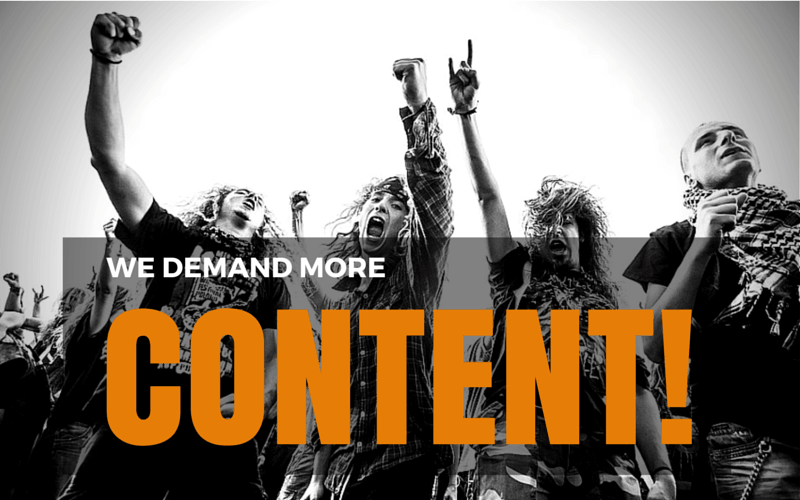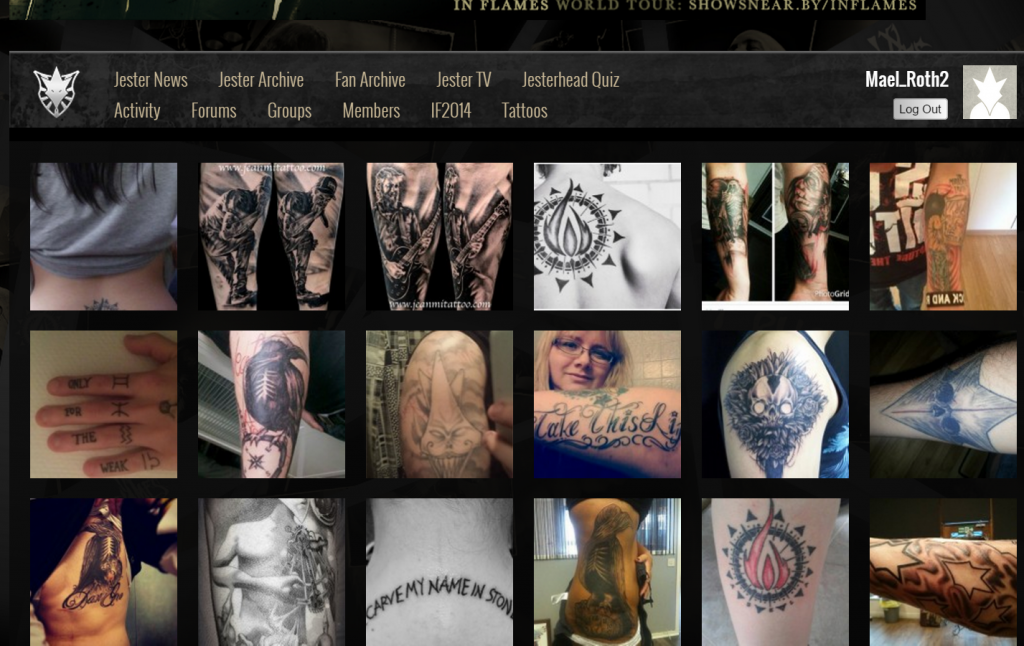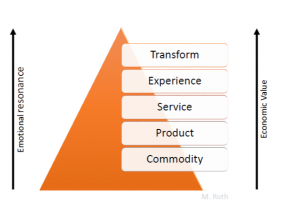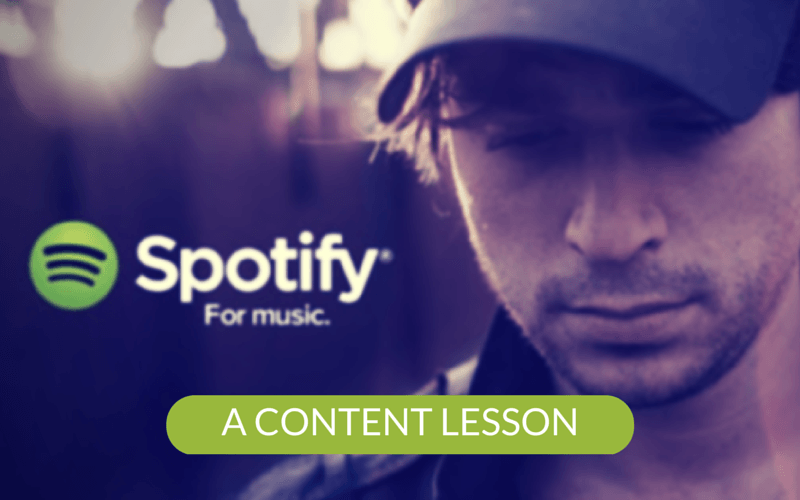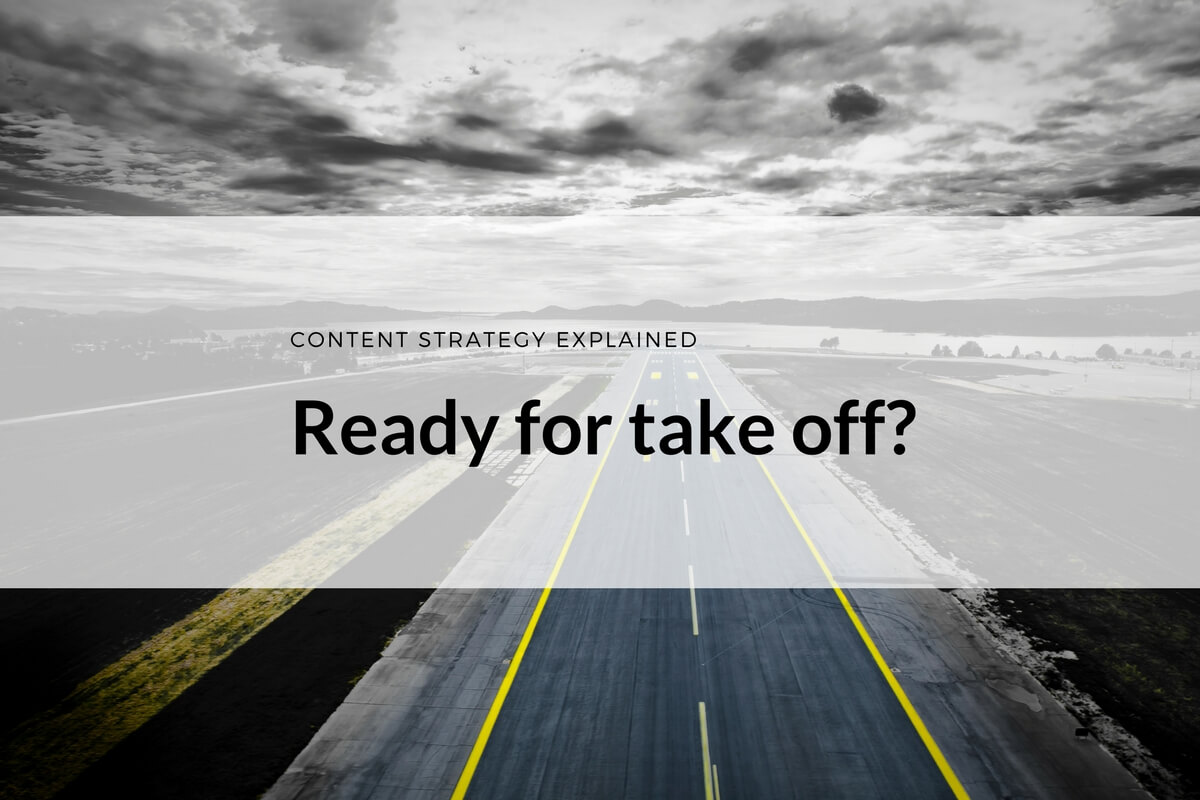Is the music industry doomed? Is technology killing the music industry and artists we love so much with it? Content Marketing for musicians: here’s why it’s the way to go…
I’ve wanted to write this post for a quite some time… and I finally took the time to do so. In this post I want to explain why and how musicians / bands should start considering another approach to monetizing what they do. Instead of seeing music as the end product, they should start seeing their music as „top of the funnel content“ and monetize an experience instead of a product. What do I mean by that? Let me explain what it really means and how content marketing can help.
The fact is: something is not right if you consider that you can’t make money with music nowadays. It’s just that the reasons why fans will buy has evolved. We’ve never had so many means of accessing music. Truly humankind has never listened more to music than nowadays! And there’s no way to make money as an artist? I don’t believe that. It’s why I wrote my master’s thesis on the unexploited potential in terms of marketing music as artists fail to understand the experiential value of it, especially in terms of live music. But don’t take my word for it.
The music industry fails to monetize super fans
A recent study conducted by MiDIA research (unfortunately, they removed their summary…) reveals that musicians fail to monetize „super fans.“ The super dans are those who are willing to drive hundreds of kilometers / miles to concerts and who buy tons of merchandise. For some, this is part of an authentic concert experience.
In fact, these super fans account for 61% of purchases, according to the research (live music, merchandise, direct funding etc.). And still:
“These fans want more from their favorite artists: 45% think music is more than just the song, that it is also the artist’s story and 18% would pay for an interactive artist app. A new generation of music products are needed, built around interactivity, multimedia and artist subscriptions.”
In an industry which has been revolutionized like few others have, consumers have been massively empowered. If you don’t want to buy music, you don’t have to anymore. There a lots of places where you can get it for free. Industry folks often say that there has been a shift „from ownership to access.“ This doesn’t only apply to the music business (you might also want to check out this article on Forbes).
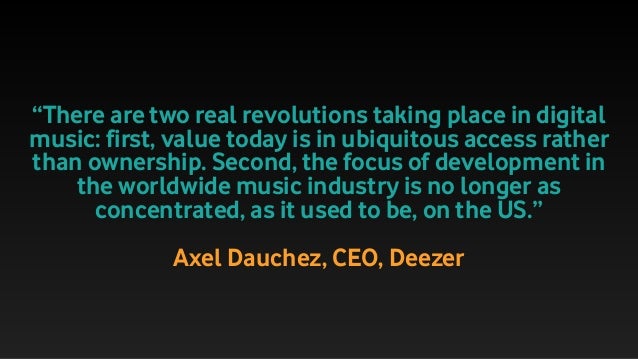
So in a world in which you potential customer doesn’t have to buy something to get it, how do you make money?
Music marketing 2.0 – Welcome to the (music) funnel
Is the sales funnel we all know applicable to the music business? And what does it mean for music marketing?
Let’s face it. Even if potential customers don’t resort to illegally downloading music, they are still going to find ways to access music without having to pay for it: Youtube, Deezer, Spotify, Napster, Soundcloud etc. Music is how artists get discovered. It’s your ToFu Content. It’s not what artists sell.
Establishing a connection with fans has always been the most sustainable marketing strategy for bands and musicians. Those who established this connection have loyal fans who are glad to pay not only for the music in a physical format, but also for merchandise and premium / exclusive content.
I recently read Jason Miller’s outstanding Book Welcome to the funnel and as it happens I learned that he’s a metal fan and music afficinado just like me. So I reached out and asked for his opinion on this…

„The major labels have a formula for breaking pop stars, but it’s flawed at best. Even when it does work the odds of anyone making money in the long run are slim.
In business to business marketing we focus on nurturing prospects through a lengthy often complex buying cycle that continues on even after the purchase is made. The focus then shifts to cross selling, upselling, and turning that customer into an advocate where they can then share their experience with other prospects. (Editor’s note: in other words the B2B Buying Funnel)
The same mindset could easily be applied to the ailing music industry. Reach potential fans through accurate targeting at the top of the funnel then nurture them with great content beyond just the music, and finally turn them into advocates and lifelong fans through a total experience. With all of the current technologies, platforms, tools, channels and the massive amounts of data available to artists and their respective label’s, there simply no longer any excuses for not monetizing this new model as an ongoing experience.
There’s a real opportunity for artists and labels to move past the one night stand of a single sale or digital stream and move on to a much more fruitful one to one relationship with their fans. You don’t need to become a superstar to flourish, you just need to build a solid fan base and continue to deliver a unique experience to them and make it as personal as possible.“
[bctt tweet=“You don’t need to be a superstar anymore to flourish in the music business“ username=“MaelRoth“]
„Establishing a connection?“ Well that sound easy, right? Not only is it more difficult than it sounds, it’s also not enough. Establishing a relationship is good, nurturing it is better. But it’s more difficult. So how do you nurture relationships? By designing experiences.
Music is not a product: it’s a content experience
In the last decade, the movie business struggled to adapt to a modern environment just like the music business did and still does. Why? Because it failed to understand that theatres are actually in the business of providing experiences.
In case you haven’t read the thought leading piece from Joseph Pine go read it => Welcome to the experience economy
Taylor Swift recently made headlines when she decided to remove all of her music from Spotify, because she wouldn’t make enough money from people streaming her stuff. Aside from the fact that I don’t know who’d stream her music (is it like banner ads, where most clicks are accidental?), I think this type of argument perfectly represents the failure to understand the (modern) value of music on the market. The statement which perfectly illustrates this is:
„And I just don’t agree with perpetuating the perception that music has no value and should be free.“ – Taylor Swift
It’s not true that consumers don’t value music. It’s just that people have the choice to buy or not nowadays. The only way to get them to pay is to build relationships and reward them with meaningful experiences. (and oh yeah by the way, it did no harm whatsoever to the growing streaming service)
In their matrix of the progress of economic value, Pine & Gilmore explain how the source of competitive advantage is evolving on markets.

Most musicians market their music as if they were goods and fail to understand that they provide an experience.
One of my very favorite people to follow around the web (sorry for stalking Robert!) is the co-founder of the Content Marketing Institute Robert Rose. I had a few short chats with Robert and one of those was about the music business and content as an experience.

„Like every business these days, digital has disrupted what it means to be in the business of music. There are innumerable business models available to musicians today, but sadly too few of them actually employ them. When you look at artists who are truly disrupting the business – such as comedian Louis CK, or musicians like Amanda Palmer – it’s not that they aren’t valuing the thing they create.
Rather, they value it highly – but monetize it in a number of experiential ways.
What digital has simultaneously done is to make it easier to become “a little bit famous” and much more difficult to actually “break through and become lasting”. The cycles are simply faster, so record companies don’t have the three years of time to develop artists any longer like they used to. Instead, you’ve got to develop within 12 months – and then hopefully last beyond that. Every artist these days also has to take the responsibility of being an entrepreneur. If they wait for a record company or a production company to do it for them – they’ll fail.“
[notification type=“notification_info“ ]By the way – I have read the first chapters of Robert’s & Carla Johnson’s upcoming book the 7th era of marketing… You should do the same. On my part probably the book I look the most forward to this year![/notification]
[Tweet „Music is not a product. It’s a content experience. Understanding this difference is key…“]
Content Marketing for musicians put into practice
Heavy metal bands were one of the first to understand the value of a dedicated community of super fans. Take Metallica-fans. Members of Metallica’s MetClub pay an annual contribution for exclusive advantages such as premium content and exclusive access to certain events.
The British band Iron Maiden launched they fan club 30 years ago (!) and it is still around and well. Membership allows fans to access pre-sales and receive 3 magazines per year (Content!) and exclusive products. Oh yeah and by the way, Maiden’s lead singer is also an outstanding businessman!
To illustrate a little more in detail, I want to introduce one of my very favorite bands out there: In Flames.
The case of In Flames
One of my very favorite bands is a Swedish melodic death metal (don’t worry, it sounds more brutal than it actually is) called In Flames. I don’t only enjoy the power of their music, I also admire their marketing. In Flames incorporates nearly every aspect of good content marketing in the mix.
They did the same outstanding job than the bands I mentioned above in terms of building a community. Their Jesterhead Community gives fans access to interviews, forums, exclusive news, audiovisual content on „JesterTV“ and even quizzes on stories around the band. A whole section even displays Tattoos fans got – isn’t that the ultimate form of endorsement and advocacy?
In 2013, the band released a comic telling the story (buzzword bingo: storytelling!) of the band’s mascot, Jester. Smart Marketing move: they hid 5 Lifetime passes (i.e. free access to concerts for life!) within the first 5.000 comic to boost orders.

Another great example of how In Flames creates memorable experiences.
When I finally got to attend a concert of the band in November 2014, they invited a fan on stage to film the whole experience from the their perspective. The footage was then integrated in the pro shots, which really makes it unique and memorable for everyone who was there! Hell I still get goosebumps…
Check out minute 51 in the this video which was taken at the event.
Takeaways for musicians / bands / artists
So if you’ve made it this far into what probably is the longest blogpost I’ve ever written, let’s sum up the takeaways.
1 – You don’t sell a product
Artists don’t sell a product, they sell experiences. What makes experiences unique are the meaning people derive from it. In fact, experiences can be so valuable for fans, that it becomes part of their identity. But in order to get to the point of bands like the ones above, you need to get your music out there and in front of the people you want to reach. This is why music is your top of the funnel content.
Think about who your target listeners may be (or should be?) and adjust distribution accordingly. If you are a musician, you are lucky because Facebook is still a plattform on which you can reach a vast number of fans. Most businesses struggle with declining organic reach. However music is a highly emotional and engaging topic which gets a lot of engagement on this platform.
And most of all: accept that the music itself is what makes you unique but it doesn’t mean you should over-protect it. Minimize the barriers of consumption and think about where you want people to go / what you want them to do when they listen to your music.
2 – You need to establish a relationship
Establish a point of rendez-vous with fans and build a relationship with them. It might be your Facebook fanpage, a twitter account or another interactive platform. The important thing is to evolve in terms of emotional attachement. Connect with interested listeners and make them subscribe to a newsletter or another of way of getting in touch with them.
3 – Acknowledge your unique experiential selling proposition
Remember that people who listen to your music will always have the choice between listening for free and buying your stuff (whether it’s a CD, T-Shirt or ticket to the next concert). Acknowledging the experiential nature of music means that you should leverage emotional aspects of the relationship.
Make it personal, make your music part of their identity, make it memorable and make them want to recommend you. Be bold and take risks (as far as you can go) to provide outstanding experiences e.g. in terms of concert locations or giveaways, formats etc. It’s about delighting and surprising audiences and building a passionate following.
4 – Produce more than music – you need more content
In order to keep fans engaged you might want to think about delivering experiences through alternative formats. There are many more content formats you can easily produce to talk to fans: Twitter Chats, Hangouts, Q&As, you might even think about blogging or asking for feedback on songs you are working on, asking for pictures fans took at concerts so that you can integrate them into clips or a collage… the possibilities are endless!
I find Jason Miller’s statement to be very simple but very true:
„The best Content creates conversations“
… and conversations creates relationships, relationships are nurtured by experiences. It’s our human nature.
There is an awesome post on the role of SEO for musicians on Moz which you should check out right now!
